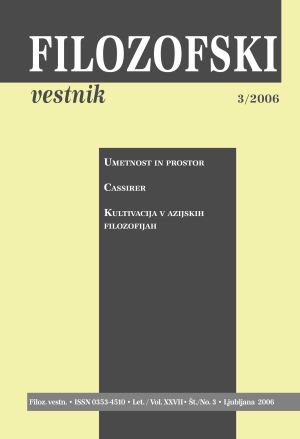Ernst Cassirer's Philosophy of Mathematics
Keywords:
philosophy of mathematics, Cassirer, logicism, formalism, intuitionismAbstract
The article considers Cassirer’s philosophy of mathematics in opposition to empiricist theories, Frege’s logicism, and its realism, Hilbert’s formalism and its nominalism, and Brouwer’s intuitionism grounding mathematics in the intuition of time. For Cassirer mathematical objects are purely relational structures and not abstractions of certain characteristics, as is the case with empiricists and Frege. In opposition to logicists, Cassirer argues for the synthetic nature of mathematics. Contrary to Brouwer, he does not ground this in intuition but ascribes to mathematics a purely logical nature and relates it to the purely rational faculty of the spirit. He thus turns away from Hilbert, who takes sensuous objects to be the object of mathematics; he also cannot agree with his formalism, which reduces all progress in mathematics to a mere combination of signs, thus stripping it of all meaning. The article considers these differences in view of the opposition between the cardinal and ordinal theories of number and the introduction of ideal elements.Downloads
Download data is not yet available.
Downloads
Published
2016-03-05
How to Cite
Lovrenov, M. (2016). Ernst Cassirer’s Philosophy of Mathematics. Filozofski Vestnik, 27(3). Retrieved from https://ojs.zrc-sazu.si/filozofski-vestnik/article/view/4378
Issue
Section
Cassirer
License
Authors guarantee that the work is their own original creation and does not infringe any statutory or common-law copyright or any proprietary right of any third party. In case of claims by third parties, authors commit their self to defend the interests of the publisher, and shall cover any potential costs.
More in: Submission chapter





